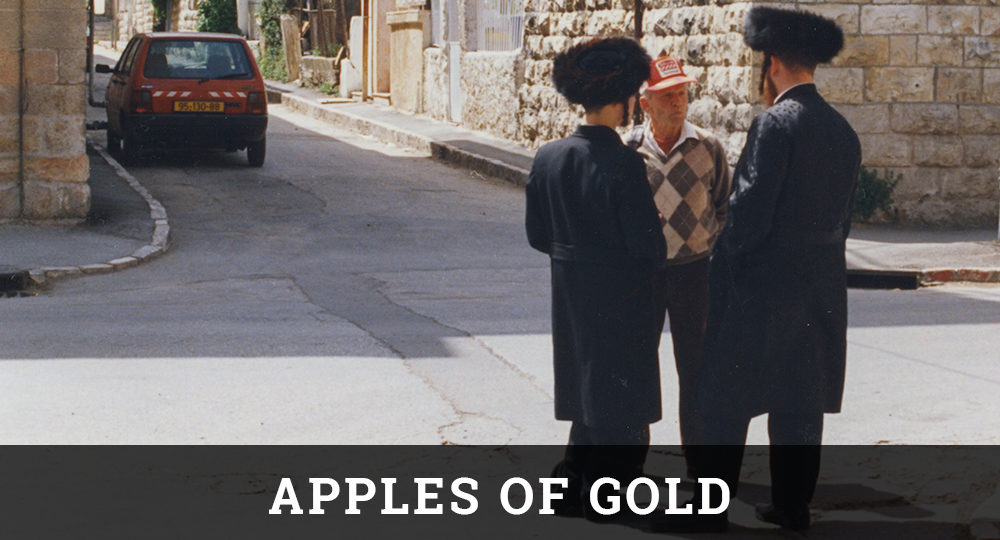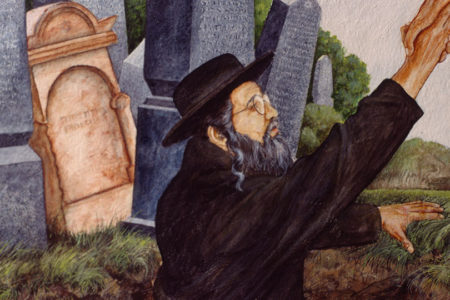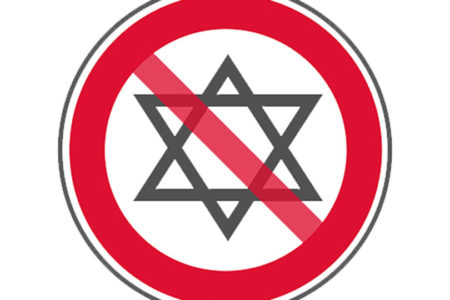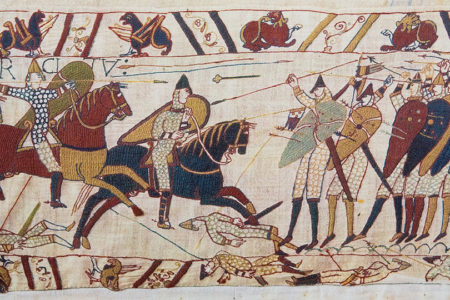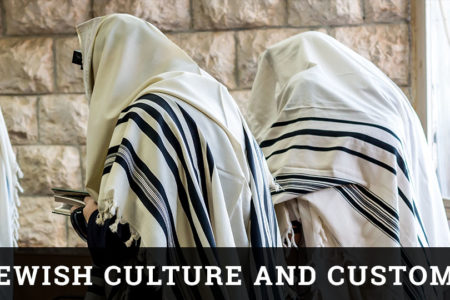Zvi Apr/May 1993
Recently I answered a knock at my door, and before me stood several young Hasidic boys who were students at a nearby yeshiva (ultra-Orthodox religious school). They looked rather ashamed of themselves, and I asked, “Has something happened? Can I help you?” “No,” they replied shyly, “but we want to help you.” I sensed that they had been sent out on some mission by their teachers and that it was proving to be difficult for them, and so I tried to be as pleasant as possible. “How can you help me?” I asked, and they said, “We have been given a great operation to perform.” “And what is your great operation?” I inquired. They explained, “We are doing this without payment, and it is really a holy duty. Today we are examining the mezuzahs on all the doorposts in your neighborhood to see if they are kosher.” (A mezuzah is a small case containing the Shema (Dt. 6:4–5) and attached to the doorpost of a home. Its use is taken from Deuteronomy 6:9, “And thou shalt write them [these words] upon the posts of thy house, and on thy gates.”)
I asked these young boys how they would know whether or not a mezuzah was kosher, and they replied, “Oh, we’ll know! It is our special, holy duty to know such things.” I then said, “The most important thing is to know that your heart is kosher. Have you examined your heart lately?” They began to look at me very strangely and said, “No one ever asked us such a question before.” “I thought not,” I replied, “and that is because most people are just like you, and you are like the wind, which blows now from the east and then from the west.” “What do you mean by these strange statements?” they asked. “How did you come to such conclusions?”
I then got serious with them and said, “I have put my trust in the Lord and not in superstitions. If I am living far from the Lord but my mezuzah is kosher, of what value will that be to me when I stand before God on the day of judgment? It will be just as it is written in Ecclesiastes 1:2, ‘Vanity of vanities, saith the Preacher, vanity of vanities; all is vanity.’ It is also written in 1 Samuel 16:7, ‘man looketh on the outward appearance, but the Lᴏʀᴅ looketh on the heart.’ So, my dear ones, I urge you to open your hearts before the Lord and receive Him as your Savior. If you do, you will no longer have to fear all the superstitions you are taught, such as those surrounding the mezuzah. Are you aware that it is not written in the Scriptures that you must kiss the mezuzah each time you come through the door? That is just an old tradition. You should do only that which is commanded in the Scriptures, because it is clearly written in 2 Chronicles 6:30, ‘Then hear thou from heaven, thy dwelling place, and forgive, and render unto every man according unto all his ways, whose heart thou knowest (for thou only knowest the hearts of the children of men).’”
I then offered these young boys a cola, and we continued our conversation as they drank. Everything I told them was taken from the Bible only, and eventually one of the boys said, “You have brought us to a point where we cannot argue against what you are saying. Would you mind if I called our rabbi and asked him to come here and speak with you? He will be able to explain our position better than we can.” “It would be a great privilege for me to talk to your rabbi,” I said, so the boy called him. Shortly thereafter the rabbi arrived at my home, accompanied by two other Hasidic men. I said, “I see you have come with reinforcements, while I am alone here with my wife. But you are welcome, and I hope we can have a nice meeting.”
The rabbi immediately asked, “What is going on here?” and I replied, “Ask your pupils. You have taught them for many years, but when they are put to the test, they are like sheep going astray. It is just as the Scripture says, ‘smite the shepherd, and the sheep shall be scattered’ (Zech. 13:7).” The boys and the two men who had come with the rabbi were all silent now, waiting for their rabbi to impart to me his great wisdom. But I got in the first shot. “Rabbi,” I said, “please tell me, what is more important to God? For us to stand and kiss the mezuzah, or to come before Him with a clean heart? As it is written in Ezekiel 18:30–32, ‘Therefore, I will judge you, O house of Israel, every one according to his ways, saith the Lord Gᴏᴅ. Repent, and turn yourselves from all your transgressions; so iniquity shall not be your ruin. Cast away from you all your transgressions, by which ye have transgressed, and make yourselves a new heart and a new spirit; for why will ye die, O house of Israel? For I have no pleasure in the death of him that dieth, saith the Lord Gᴏᴅ; wherefore, turn yourselves, and live.’ You see, rabbi, it is not written, ‘Get yourselves a new mezuzah,’ but ‘make yourselves a new heart and a new spirit.’ It is in this way that you should worship your God.”
“No! No!” cried the rabbi, and he then asked, “Do you also read the New Testament?” “Yes,” I replied, “and because I do I know in whom I have believed. I believe in the living God, not in many different idols, such as you. I do not kiss the mezuzah, because it is clearly written in Deuteronomy 6:13–14, ‘Thou shalt fear the Lᴏʀᴅ thy God, and serve him, and shalt swear by his name. Ye shall not go after other gods, of the gods of the people who are round about you.’”
I could see that the Hasidic men and the young boys were very bitter and disappointed in their rabbi. He wanted to show his great wisdom and prove to them how smart he was, but everything he said was from the Talmud or other books of tradition, while I spoke from the Bible only, which I kept open in my hands during our entire conversation.
To lighten the atmosphere a little, I offered the rabbi and his companions coffee and more colas to the youngsters. Finally the rabbi asked, “Are you a Jew?” I am asked this over and over again, and as usual I replied, “I worship God according to the Bible, but you, rabbi, are worshipping other gods. Are you a Jew?” I then gave them my testimony, telling them how I had come to believe in the Lord Jesus as my Savior.
Please pray with me for these young boys, the rabbi, and the two men who were with him, that the Lord will open their eyes to the emptiness of their vain traditions. As the Lord Jesus said, “For what shall it profit a man, if he shall gain the whole world, and lose his own soul?” (Mk. 8:36).
